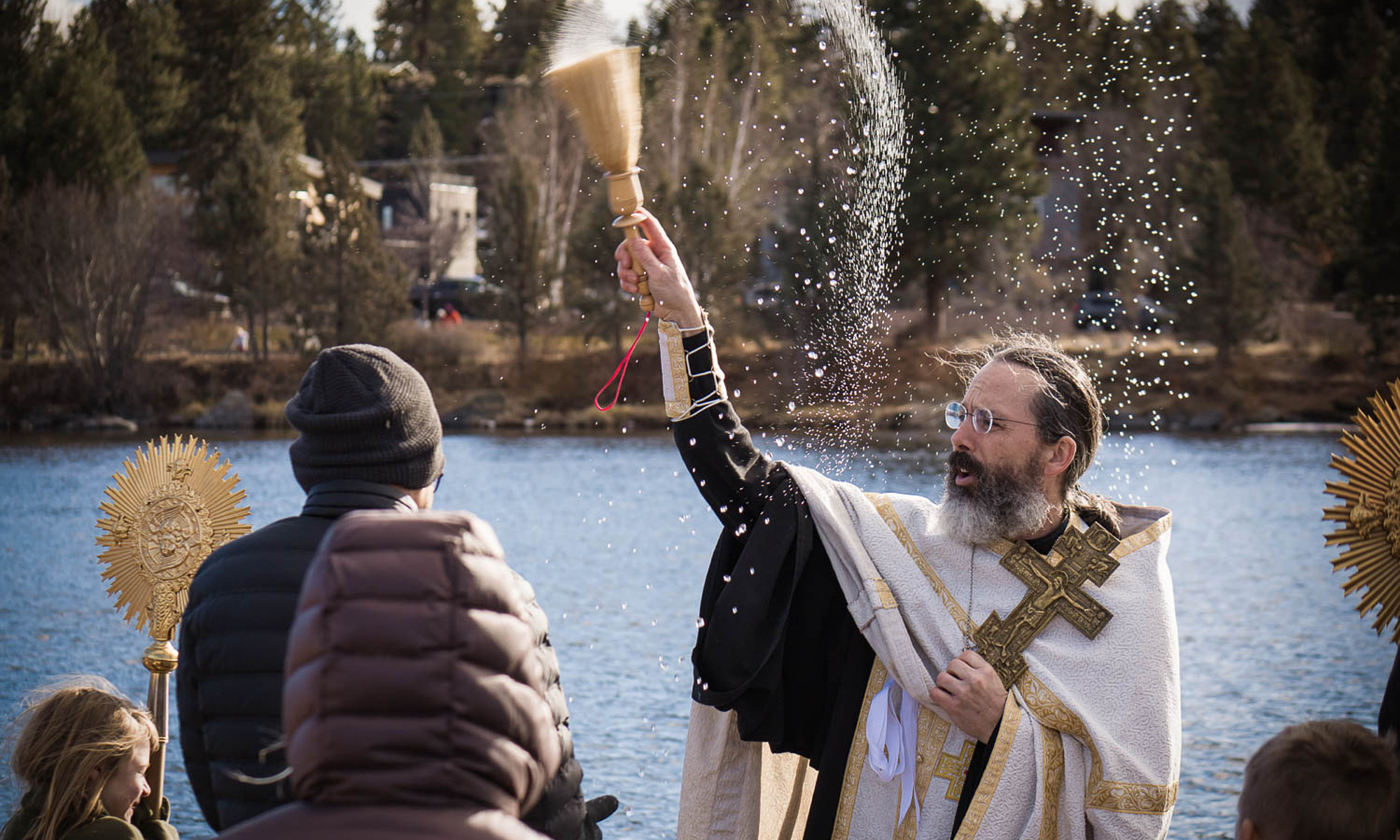We just had Zacchaeus Sunday, so-called because the gospel reading is about Christ’s interaction with Zacchaeus. The testimony of Zacchaeus is being used as a link between Theophany and Pascha. In giving us this reading, the Church is giving us a little hint, a hint to look toward Zacchaeus, so that we can know how to step out of Theophany and into Great Lent.
Since this Gospel reading is set at the end of this season, we should look briefly at what has happened in this season. What do we celebrate at Theophany? Christ was baptized. And baptism, at its root, is a cleansing. Christ came to be baptized, but being God, was in no need of cleansing, and indeed, it was he that sanctified the waters. And just as we see Christ enter into the waters of the Jordan, now we see Christ enter the house of Zacchaeus.
And what is it we see happening in this passage with Zacchaeus? Look closely how Christ reacts to Zacchaeus’s repentance: salvation has come to this house, and truly this is a son of Abraham. Both of these sound a lot like… ‘you were on the outside, and now you are on the inside’ –or– ‘you did not act like an Israelite (cheating your own brothers for your own selfish gain), but now you have compassion on your fellow man and are one of your own people’ –or– ‘you were lost, and now you are found’. Salvation has come to this house. I have come to save the lost.
The repentance of Zacchaeus has brought salvation to his house; his repentance is what makes him a true son of Abraham. Christ came to seek and to save what was lost, and it is the clear fruit of repentance that shows Zacchaeus to be found.
At Theophany we were baptized. And following, in the Theophany season, we have been “baptizing” our houses, blessing them, driving out every evil influence, and setting them apart for their good and proper use. And when those homes are sanctified, this same gospel passage is read. Salvation has come to our house. Christ is here. It is not our job to point out all the sinners around us, like those who pointed at Zacchaeus. We are to bear the fruit of repentance, just like Zacchaeus.
That’s what Great Lent is all about, and that’s why this passage is here: the link between the beginning of our journey, at Baptism, and the rest of our journey of repentance, of striving to daily turn toward Christ.
There is more to say about this transition into Lent, but I will save that for next time.
